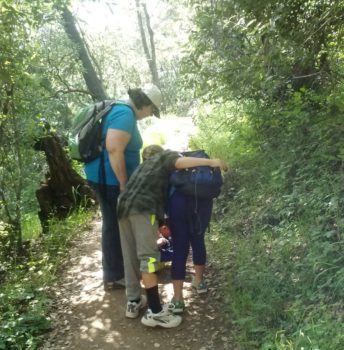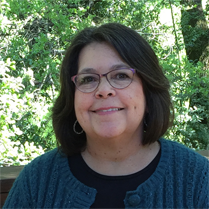Recording Observations in Science Notebooks

When I hike with my grandchildren, they make many observations along the way. They may watch a slug moving on a leaf, or worms slither around as they lift up a rock. They generate questions about the plants and animals they see. Often this leads to conversations that generate lots of ideas to explain what they have observed. It is valuable to record these observations and these comments in science notebooks.
Start Young
Recording observations can start with very young children by encouraging them to draw what they have seen. If children cannot yet write, they can dictate to parents or grandparents, who can then label the drawings. They may also record the children’s questions or observations next to the drawings.
Little by little, children will want to write for themselves. At first, they may write one letter or a series of letters they hear when they say name of the object they are depicting. This inventive writing should be encouraged. It is a vital step in the development of writing. Eventually, as their phonemic awareness increases and their phonics develops, children will fill in the missing letters and increase their written comments.
Academic Connection
In school, children will be asked to record their scientific observations as early as in kindergarten. The Next Generation Science Standards, adopted by the Sate of California in 2013, emphasize the expectation that kindergarteners will make observations to look for patterns in nature. It couples this standard with the English Language Arts standard about participating in research and writing projects.
We want to encourage children to think like scientists – to be observant; to put words to their thinking; and to record their thinking. We, as parents and grandparents, can encourage this process as we spend time in nature with them.
With love and affection,
Rosemarie
Copyright © 2018 by GenParenting

Rosemarie Pérez has worked with English learners and their families in public education for more than twenty years. She has served as a bilingual teacher, professional developer, and district administrator. Administrative roles included serving as the Director of English Learners for an elementary school district and as a Coordinator of Reading and Language for the San Mateo County Office of Education. Rosemarie continues to work with families as she leads the Santa Clara County Office of Education’s Parent Engagement Initiative during the past three years. Ms. Pérez provides expert guidance to teachers, school site staff, and school administrators in creating culturally sensitive parent training modules and academic curricular units. She facilitates parent education and Common Core Standards workshops. Engaged parents are further trained to become parent leaders and advocates. Rosemarie is the mother of five adult children and three grandchildren.

